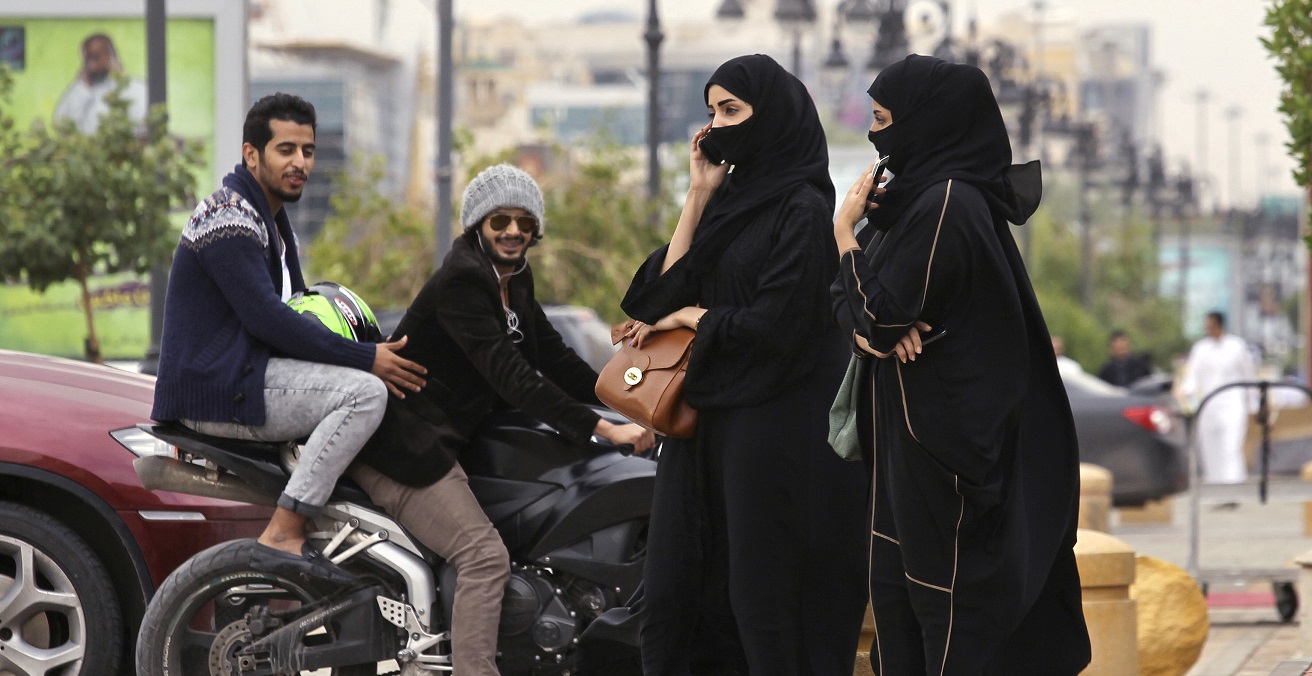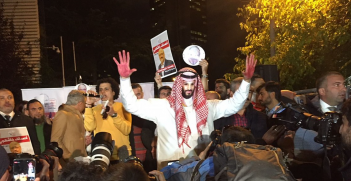2021 in Review: Saudi Women Have More Rights, This Time to Join the Army

Over the past decades, there has been copious negative publicity surrounding the position of women in Islam. This condemnation often forgets how, theologically, Islam grants women more rights than any other world religion, including Judaism and Christianity.
Within Islam, both the Qur’an and the Prophet were amicable to women. Fifteen centuries ago, Islam encouraged women to participate in social, economic, and political activities. It also granted women the right to marry, divorce, an inheritance, education, work, and assume leadership positions. In addition, it defined their rights within the context of the family relationships. These rights protected women and secured their dignity.
As such, we can stress that a society based upon traditional Islamic precepts would offer women a full and positive role in society as well as personal rights. However, on the establishment of the Kingdom of Saudi Arabia in 1932, the Saudi government adopted a form of Islam that was at odds with the traditional Islam which set up the foundation of women’s rights and protected them. This form of Islam is known historically as Wahhabi Islam, which arose because of the union between the political and religious powers to give the royal family legitimacy. Under this form of Islam, the royal family imposed restrictions on women and others to control society.
Among the most severe restriction imposed on them was the denial of education. This was in clear defiance to the Quran, Sunnah, and Shariah that stress strongly the right of women to gain knowledge and education and develop their intellectual capabilities. Formal education for women in the kingdom did not begin until the 1960s, when the late King Faisal decided to defy the opposition and allow women to start receiving an education. Still, at the time, that education was very limited. It was not until later that the government invested in women’s education and started to encourage women to learn and acquire knowledge.
Other rights granted to women by Islam in the foundational texts continue to either be denied or interpreted in a way that make them difficult to be practiced. Progress has been seen, as demonstrated in 2011, where despite being an absolute monarchy, the late King Abdullah decided to grant women the right to take part in municipal elections and stand as candidates. This took place subsequently in 2015. It was viewed at the time as a welcome decision that would allow Saudi women to play a public role, though a limited one.
When the current King Salman bin Abdulaziz took over in 2015, his son Muhammad ibn Salman assumed a prominent role in Saudi politics and introduced the so-called “2030 new vision” to modernise the kingdom. Among the issues he dealt with in this context is women’s rights in the kingdom. With the support of his father, bin Salman issued several decrees giving women certain rights, chief among them the right to drive, lifting the ban on women’s drivers. Women are now allowed to travel without permission from their male relatives or guardians, initiate registration for divorce or marriage, and are able to be guardians for minor children.
Further, the kingdom has opened up opportunities for women to work in various professions, such as in medicine, teaching, business, and law. Some jobs that were historically limited to men, such as service in restaurants and coffee shops, also opened to women.
Most recently, in February 2021, the Saudi Ministry of Defence issued a ruling allowing women to join the army from the rank of soldier up to sergeant. This ruling also granted women the right to join the Royal Saudi Air Defence, Royal Saudi Navy, Royal Saudi Strategic Missile Force, and the Armed Forces Medical Services. This ruling was very controversial for a conservative society such as Saudi Arabia. It was an unusual decision, given that these professions require substantially greater physical ability than other professions.
How many women will take up these professions will remain to be seen. There are hinderances to the ease with which women can apply for these careers, such as application requirements that limit the age of the applicants to between 20 to 40 years old. This age is a prime age for women to form a family, which is essential from the Islamic perspective, engendering an underlying conflict of interests between their role as wives and mothers and their role outside the home.
There is no doubt that granting Saudi women the rights they deserve is a welcome gesture, especially if we take into consideration that Islam already granted most of them fifteen centuries ago. In this context, the king and his son are moving in the right direction.
However, it also seems that the crown prince is following a modernist approach toward this issue which is wholly alien to Islam. This modernist approach is rooted firmly in the modern Western thought that is primarily a human-made ideology. It also negates any role for religion in human life. This is in contrast to Islam or al-Din, which is a divinely revealed religion the roots of which are firmly embedded in the Qur’an and the Sunnah of Prophet Muhammad and insists on prominent role in human life.
Hence, it appears to be aimed primarily at boosting bin Salman’s image as the “liberator” of Saudi women by imposing certain foreign practices. This state feminism, notably the Western interpretation of feminism, could easily backfire if it does not take into consideration the religious and social norms of the kingdom.
In dealing with Saudi women’s rights, Islamic principles should guide the current Saudi attempt to formulate an authentically Islamic approach to women’s rights. Saudi Arabia is regarded as a “traditional” country and is ostensibly closer to Islamic cultural norms than the other Muslim countries. Therefore, it is important for the kingdom to approach women’s issues from within to ensure success. There is no need to borrow foreign modules that do not fit Saudi society, and for that matter, other Muslim countries.
We know that Islam has a prominent social system that can ensure justice and equity for women. We know also that women in the early Islamic period were not only socially, politically, and economically active, but were also encouraged to attain all branches of learning, and indeed, rose to positions of great eminence. In stark contrast to this, we have seen that in modern Saudi Arabia, the image of women is one of seclusion from society and exclusion from certain areas of learning, which has detrimentally impacted employment opportunities. These attitudes to women can be attributed much more directly to inherited socio-cultural norms – assimilated from non-Islamic cultures – or re-emerging out of pre-Islamic practices, rather than to any Islamic principles.
The position of Islam on women’s rights, as on so many other issues, aims at a balance, a “middle way” – as Islam is so often called. That position recognises that women are, in principle, wives and mothers, however it does not allow this recognition to block avenues of self-development for women as individuals in their own right. Conversely, the dignity and value of being a wife and a mother should not be diminished by the concept of equality of educational opportunity.
In Islam, the choice is not an “either-or” one. There is no necessary contradiction between affirming the sacred role of women in the home and respecting the right of women to participate in social activities outside the home. So long as the approach to women’s rights is governed by the spirit of Islam throughout, there will be a harmony between these two modes of social activities. Assimilating this way of thinking would permit women to express themselves in accordance with their natural dispositions, giving them the respect and honour that is so central to the real social message of Islam.
This article was originally published on 12 March 2021.
Dr Haifaa Jawad is an Honorary Senior Lecturer in Islamic and Middle Eastern Studies at the Department of Theology and Religion at the University of Birmingham. She is also a Senior Research Fellow at the Centre for Muslim Policy Research in London. Her research interests lie within Islamic studies and Middle Eastern politics and history. She enjoys researching and writing on areas pertaining to the socio-political study of Islam in the modern world, taking into account issues of feminism, post-colonialism, and extremism.
This article is published under a Creative Commons License and may be republished with attribution.





